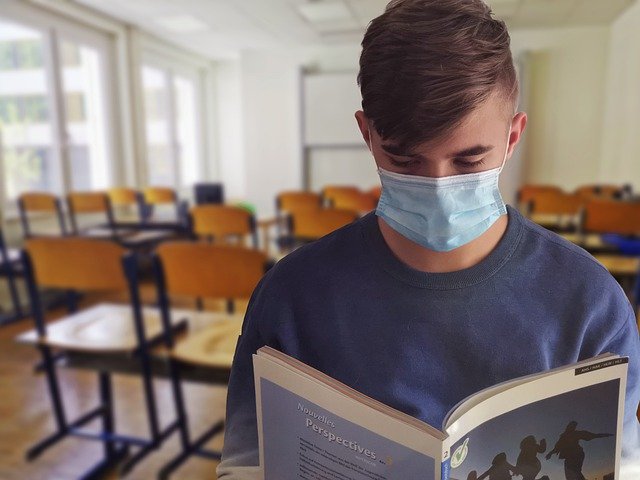An analysis saying that coronavirus infections mainly happen at work or school is being called into question by Belgian biostatistician Geert Molenberghs, who points to the lack of infection clusters in those places, and instead blames returning travellers for the increase in Belgium's figures.
An analysis by the Flemish Agency for Health and Care of contacts and sources of infection showed that people get infected in class or at the office, and then pass on the virus to family members. "We do not yet have precise figures on this, but everything points in that direction," communications manager Ria Vandenreyt said.
According to biostatistician Geert Molenberghs, however, the rise in infections is mainly caused by returning holidaymakers.
"At the end of August, a lot of people came back from travelling and they took infections with them. Additionally, we see that people returning from red zones are being tested more, and as a result, we are also finding more cases," he told Het Nieuwsblad.
Even though some infections will definitely happen at school or at work, "there are no clusters of infections" that could indicate that these are the places where most infections happen.
Related News
- Covid-19 infections mostly happen at work and at school, research shows
- Belgian average rises to 510 new coronavirus cases, 20 hospitalisations per day
- Coronavirus: Liechtenstein only travel zone still entirely green for Belgians
"That is partly thanks to the face masks. That is why you will get a few cases in schools or on the work floor, but not an uncontrolled outbreak. We continue to pay attention to that," Molenberghs said.
Additionally, several municipalities which have seen very few infections over the past months have suddenly become red, due to "intrafamilial infections," according to him.
"We have some outbreaks in, for example, [the small municipalities of] Hamme and Temse, where a large family with an infected person has had contact with several households," Molenberghs said.
Once the returning travellers have disappeared from the statistics, the figures should start stabilising again, if everyone continues to respect the rules.
"With the current measures, it should be possible," he said on Flemish radio. "I do not like wearing a face mask either, but it is a cheap way - both financially and socially - to prevent another lockdown."
Earlier this week, 70 doctors asked in an open letter that students should no longer have to wear a mask in class, as they received a lot of complaints about physical and mental discomfort among school-going youth.
However, the mask rule remains important, Molenberghs said. "In the Far East, the face mask has been in use for 20 years. I see that the schools there are functioning normally. The mask - even if it is not nice - is the way to keep the schools open."
Maïthé Chini
The Brussels Times

